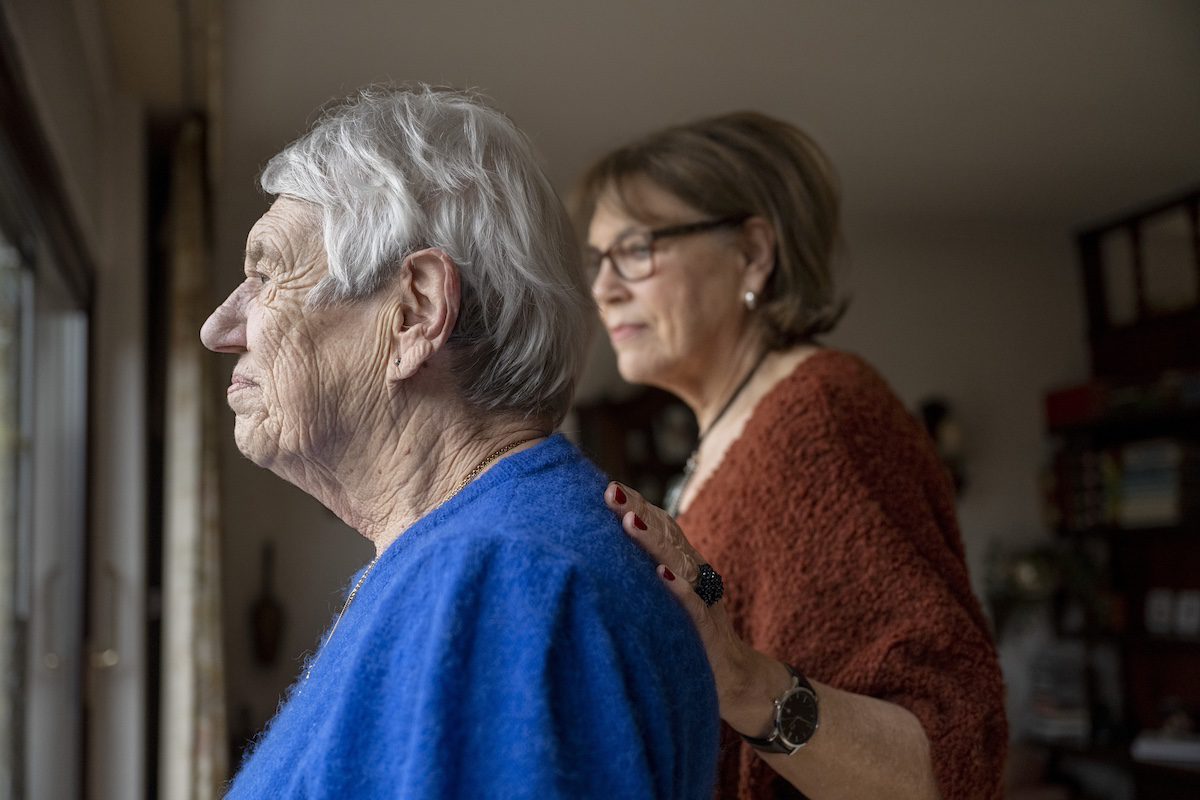Your Grief is Unique
Grief is a part of life.
One of the primary tenets of hospice care is to value death as a natural part of life. In the same way that we acknowledge the beginning of life, we acknowledge and respect its end. And a part of that acknowledgment is grief.
Everyone experiences grief, just as everyone experiences death. Grief is universal. However, we don’t all experience grief in the same way. In fact, one person may experience grief differently in different situations.
The Uniqueness of Grief
Since grief is universal, there is a temptation to believe that it’s always the same. However, this is not the case. There are several things to consider when deciding how to best deal with grief. What are these differentiators? What should you consider if you are grieving?
1. Your personality.
We are all unique in life. We are just as unique in our grieving. Grief experts describe “stages” of grief. But you may not feel your experience matches these. That’s ok. Interpret this type of guidance loosely. It’s very helpful to know what to expect. But don’t forget to consider your own personality.
2. Your relationship to the deceased.
You will certainly experience grief at different levels throughout life. Your grief at losing a favorite teacher will be different than the grief you experience at losing a close friend. But your grief at losing one grandparent may also differ from that you experienced at losing another.
Just as each relationship is unique, the grief at its loss is also unique. One of the primary things to realize is how much time you spent with that person. If you saw them daily, you will have daily reminders. That’s tough, but so is the opposite.
If you saw the deceased rarely, those reminders will be spread out over weeks or months. But they can still be powerful. This can even make the grieving process seem to take longer.
If a relationship was positive, the initial grief is severe. But what if your relationship with that person was strained or contentious? This can make grieving more complicated. And this grief will be very different, but just as significant.
3. Your support system.
Relationships affect everything. We need each other. In fact, most of us don’t realize how much we depend on the people around us. Grief is no different.
You will experience grief differently with a house full of kids than with an empty nest. If you have strong friendships, they can provide valuable support. But if you tend to be a loner, you may struggle more. Close, open, and positive relationships are key to successful grieving.
One of the most valuable elements of a support system is a small group. A Sunday School class or Church small group can fill this role. Otherwise, a support group for grief is an invaluable tool.
4. Your place in life.
Children certainly experience grief differently from adults. But age is not the only consideration. You’ll experience grief differently in the throes of your career than in retirement. You’ll grieve much differently as a single adult than as a parent.
Your place in life carries with it several factors important to grieving. First, there are differences in your support system. But also consider financial security, job stability, your level of busy-ness, and your lifestyle.
5. Your mourning style.
Mourning is described as the outward expression of our grief. It’s important to have an outlet to express our sadness and loss. But everyone does this in different ways. Make sure you have an outlet to express yourself freely. Don’t feel like you have to do what’s expected.
But mourning also includes the important task of memorializing. Do things to remember your loved one. And this is one of the ways to truly make your grief unique. You can use resources to find memorializing activities, but make them your own.
6. Your grieving skills.
Losing a loved one is devastating. And going through the experience again doesn’t make it easier. However, there are skills we can develop. These grieving skills help us make sure we come out ok on the other side.
Yes, we are unique. However, the “stages” or “tasks” of grief described by experts can be very helpful tools. Take time to learn what experts say. Use these tools to help you care for your own emotional well-being. You can still embrace your own uniqueness.
Hospice Care and Bereavement Support
At Crown Hospice, we have walked with countless people through their unique experiences of grief. We have witnessed the wide spectrum of ways in which people process and outwardly express their grief. And because of that, we honor each individual’s unique journey by letting them be who they are and feel what they feel.
If you have a loved one in need of Hospice services or you want to learn more about our bereavement support program, please do not hesitate to call us at (866) 703-4801 (toll-free) or (573) 335-4800 today. At Crown Hospice in Cape Girardeau, Missouri, we are here for you.
Photo by Anton Darius | @theSollers on Unsplash


